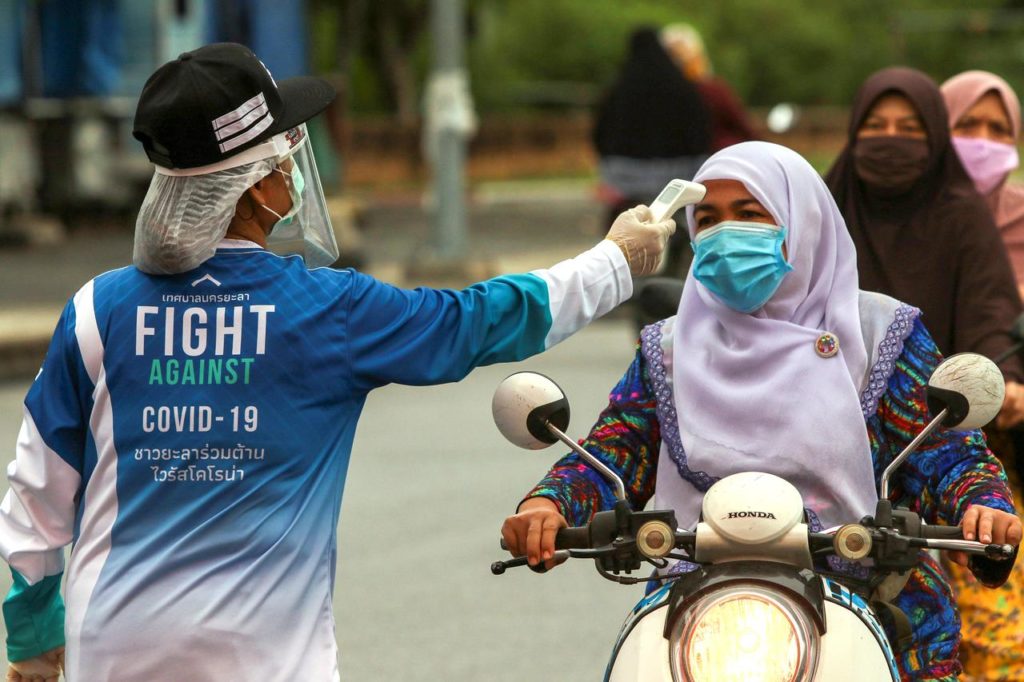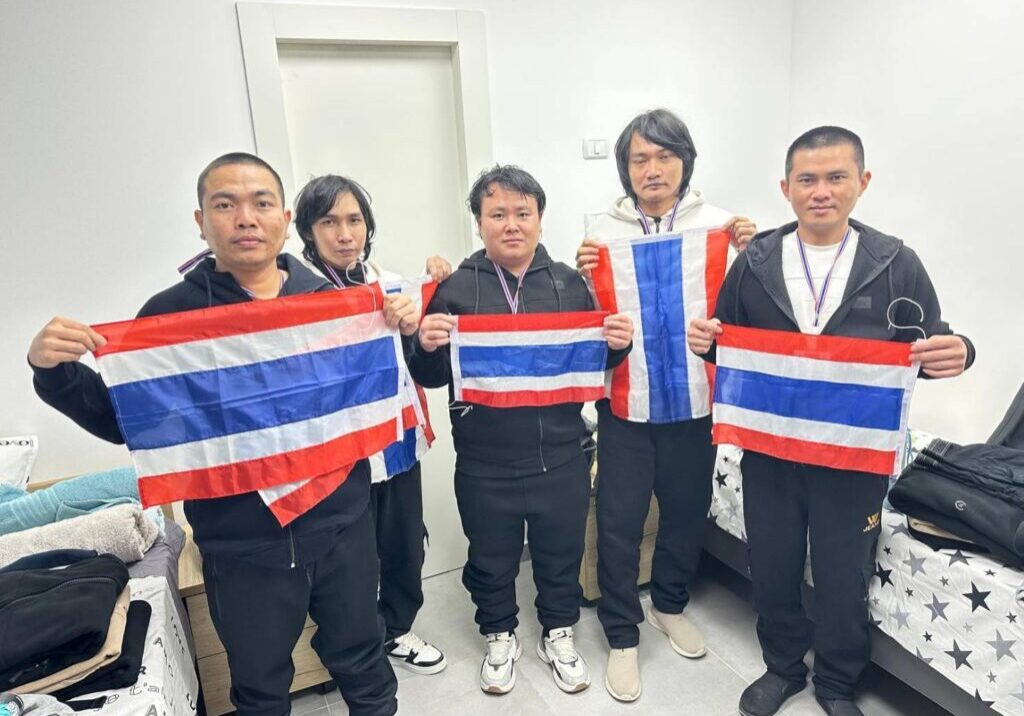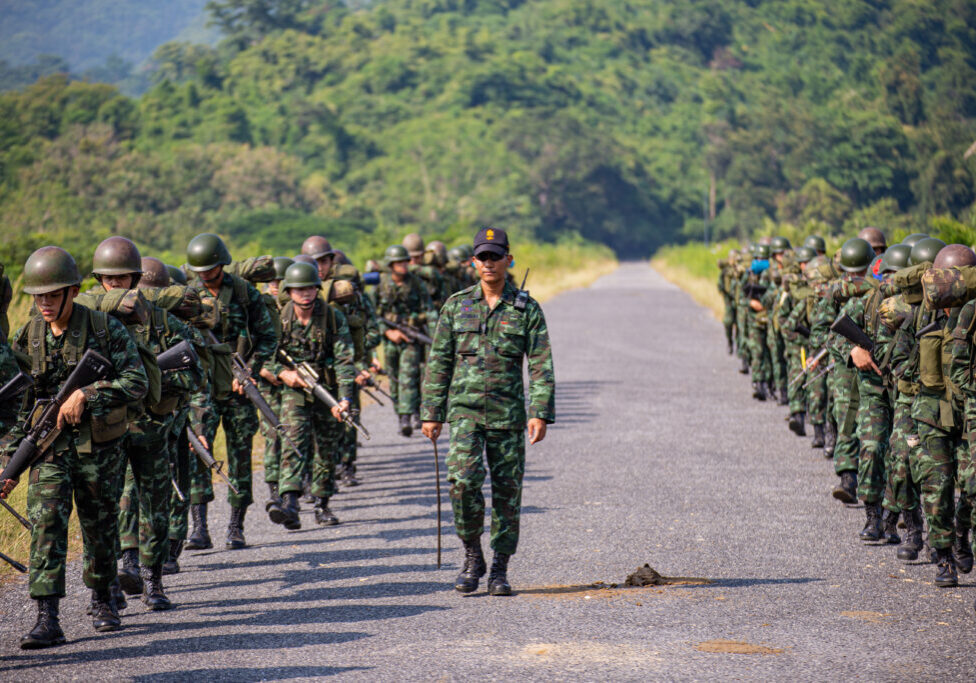Australia/Israel Review
Asia Watch: In the balance
May 5, 2020 | Michael Shannon

The coronavirus pandemic is adding an extra layer of hardship to impoverished southern Thailand, already struggling to contain the disproportionate growth of infections, yet the lockdown has brought about a rare cessation of hostilities in the insurgency-stricken region.
Ripple effects from the viral outbreak have hit the region’s fishing and rubber farming industries, and the closure of the Thai-Malaysia border trapped nearly 100,000 Thai workers on the wrong side. The border provinces are already among the country’s most impoverished, with an average household income of 15,000 to 20,000 baht (A$720 to A$965) per month, compared with 45,500 baht (A$2,170) in Bangkok.
Confirmed infections in the southernmost provinces account for 11% of cases recorded nationwide since January, although the mostly Muslim, Malay-speaking region comprises just 3.5% of Thailand’s total population.
Meanwhile, the office that oversees Muslim affairs has ordered mosques closed nationwide and banned activities associated with Ramadan, which began in late April, including food bazaars, invitations to break the daily fast with friends and colleagues, and large groupings for evening prayers.
Thai authorities already have to walk a fine line, enforcing public health measures while avoiding offending religious sensibilities, but appear to have been blindsided by the disastrous timing of the massive Islamic revivalist gatherings held by Tablighi Jamaat.
As mentioned in last month’s column, hundreds of followers of the India-based missionary group tested positive for the coronavirus after attending gatherings in Malaysia, India and Pakistan, despite warnings from medical personnel and fellow Muslims to observe social distancing. Other followers who travelled to Sulawesi in Indonesia to attend another gathering, which was eventually cancelled, also caught the virus.
Around 340 Thai Tablighi Jamaat followers who attended the Malaysian event or had travelled for the Indonesian gathering have tested positive for COVID-19 since returning home. This cluster included 170 residents of the Thai deep south. Most of those infected did not display any symptoms upon their return, but steadily streamed into hospitals in the weeks that followed.
On March 17, only four cases had been detected in the southern border region, but that number had jumped to more than 280 by mid-April.
Containing the virus in the Muslim-majority, Malay-speaking far south is a task complicated by the ongoing separatist insurgency that has claimed more than 7,000 lives over the past 16 years. Yet, the insidious spread of COVID-19 through the region has achieved what many years of counter-insurgency operations could not – a ceasefire.
On April 3, the Barisan Revolusi Nasional (National Revolutionary Front, or BRN) which has spearheaded the separatist revolt, announced it was willing, at least temporarily, to put down its arms on humanitarian grounds and facilitate the response to a threat it described as the “principal enemy of the human race”, so long as the Thai military refrained from attacking its forces.
The declaration by BRN came two months after its military wing and the Thai government announced that they had opened direct talks facilitated by Malaysia, but the path since then has hardly been smooth.
Thai security forces have continued targeted raids on insurgent safe houses, leading to clashes, bombings and arrests. BRN leaders have complained that these operations – reportedly based on improved operational intelligence – are at odds with Bangkok’s stated goal of advancing peace.
Larger sweeps through mountains and jungles where BRN fighters hide out have also taken a toll. In February, a running battle in the mountains of Narathiwat saw six fighters surrounded and killed in the largest single loss to BRN’s military wing since 2013.
One of the largest operations to date unfolded in mid-March when security forces closed in on a group of rebel fighters camped in marshland close to Yala city. After dragging on for nine days, the operation left four rebels dead along with one Thai soldier killed and six others wounded.
The BRN struck back with a massive car-bomb attack on March 17 on the headquarters of the Southern Border Provinces Administration Centre (SBPAC) in Yala city which injured some 25 people but miraculously caused no fatalities. The ceasefire announcement followed soon afterwards.
The Thai Government has not yet given an official response to the announcement, although a spokesman for the military’s southern regional command indicated that security forces would carry on with enforcing laws “to keep internal peace, regardless of [a] ceasefire.”
Mutual suspicion between the two camps remains high. Hopes that the pandemic pause could create an opening for a lasting peace appear slim.
Tags: Asia, coronavirus, Thailand






